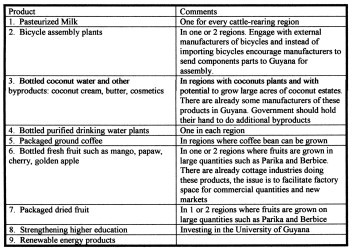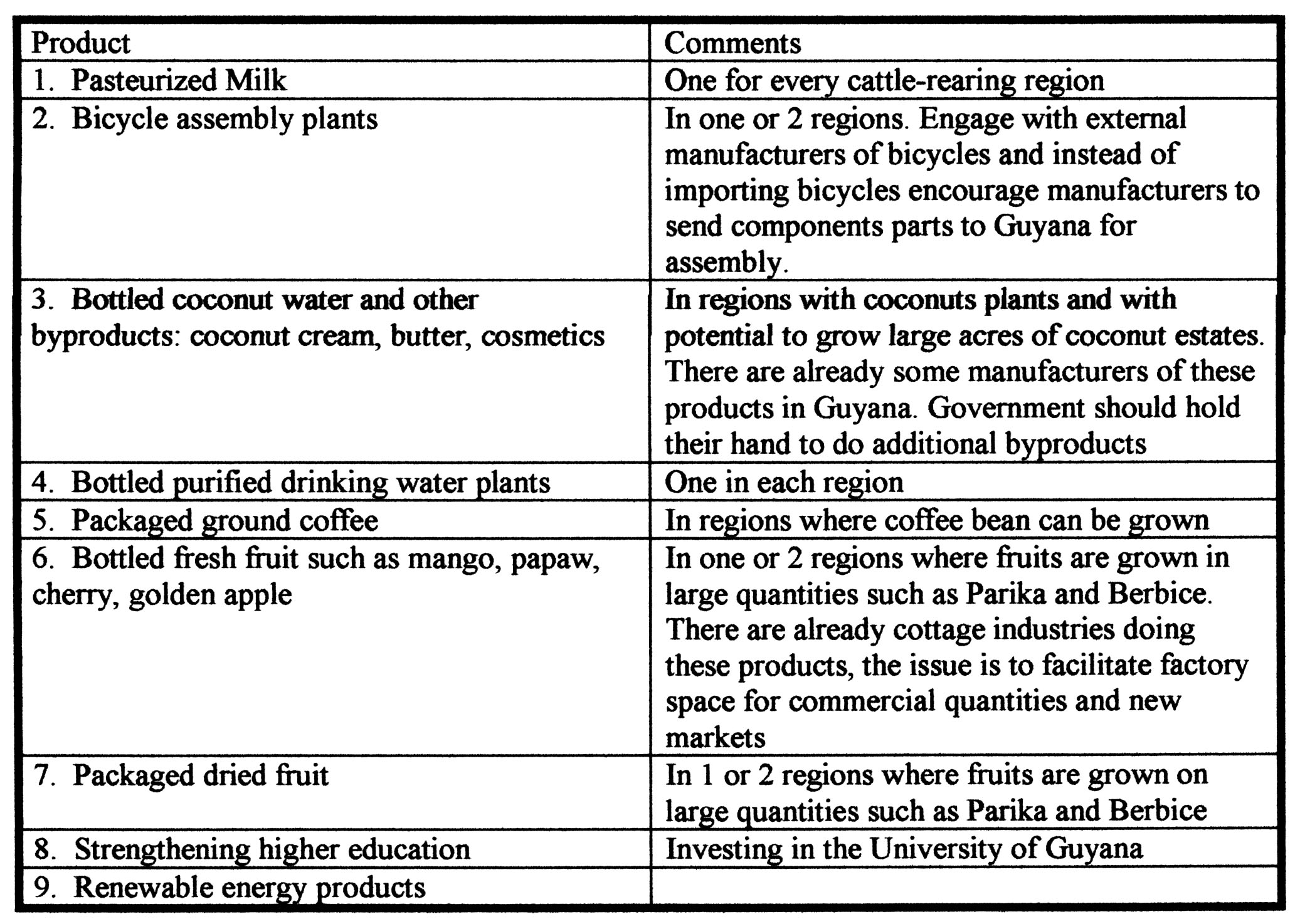Dr Tarron Khemraj and Joycelyn T Williams
The high rate of unemployment in Guyana (around 40%) points to the urgent need for structural change to create new growth poles that allow for new sunrise industries to contribute to production and employment creation. Fixing the doing business indicators and the macro-environment for investment is only one limited way of stimulating new investment. Deliberate strategic planning and concerted action by the state to coordinate this thrust towards a more diversified economic base are necessary and urgent if growth is not to stagnate.
Product composition
Here we present a list of industrial products that can serve as a target for policymakers in the quest to create new industries that can increase employment:
Behind GDP figures are factories and service- providers that produce goods and services for the economy. Careful reflection will point squarely to light manufacturing as being the answer to the diversification question. This is the path that countries such as Brazil and the NICs utilized in building industrial capability, since technological know-how has to be built gradually. It is hardly the case that a country can jump from producing primary products to producing cars and ships.
 Guyana already possesses the agricultural raw material base for producing some of the products listed below though we must move to commercialize production for export and create forward and backward linkages that create growth in both the primary and secondary sectors and by extension, GDP growth.
Guyana already possesses the agricultural raw material base for producing some of the products listed below though we must move to commercialize production for export and create forward and backward linkages that create growth in both the primary and secondary sectors and by extension, GDP growth.
Pursuit of industrialization utilizing renewable energies – including power generated from bagasse, coconut shell and husk, small hydroelectric plants, wind energy from the Essequibo Islands and solar energy for sale to the Guyana Power and Light Company can assist in this process.
The institutional framework
Planning for industrial development in Guyana is the imperative. A multi-level and integrative approach that allows the various levels of government to influence and guide the process will be useful. Throwing away the baby with the bath water with regard to the state’s facilitating role has little support in development economics today. New infant industries continue to need the help of the parent environment much like children do, even if that help is different from what it was decades ago.
NICIL was previously looking after government’s interest in industry. This may be the point of continuation by upgrading NICIL to the National Industrial Development Authority linked to each regional industrial development corporation. Go-Invest is retained for investors who are doing routine large investment in the traditional sectors. The sunrise industries need a different kind of attention and agility to move them forward.
- a) The National Industrial Development Authority’s mandate is to stimulate new industries and provide state support to make sure all forms of assistance that needed is granted. It ought to have a close relationship with Go-Invest.
- b) It will be easier to get members of the diaspora to invest in their region of origin than at the level of a National Go-Invest, hence the regional industrial agency.
- c) The Diaspora policy must be rolled out with more emphasis on regional connections. Regional Investment Corporations will constitute representatives from central government so that projects fit in the national vision, members of the regional councils and the Diaspora. It cannot be that industrial growth will just spring up in some depressed areas like Linden and Essequibo by central government taking its hands totally off the economic pulse of these zones.
The free market has not worked in the last 23 years to create new industries and by itself will be too slow to create new industries and jobs. The structural constraints and the economic stagnation is too deep, in areas like Linden for the profit motive to push new production and new industries. Industrial corporations, funded by a combination of state, private sector and diaspora can provide the budget and human resource for start-up.





